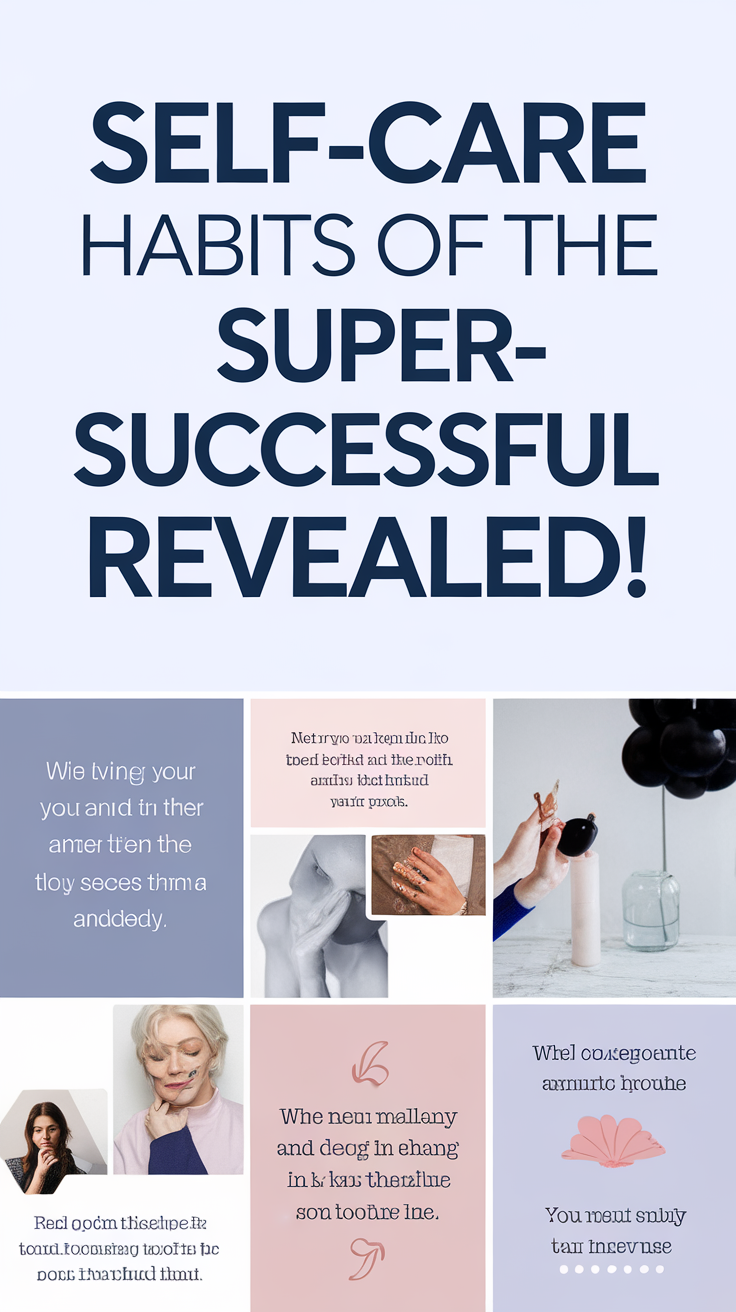The Best Daily Self-Care Habit You’re Not Doing Yet
The best daily self-care habit you’re not doing yet is mindful breathing. This simple practice can ground you and reduce stress noticeably. By focusing on your breath, you can anchor your thoughts and regain emotional control. You’ll lower cortisol levels, enhance your mood, and even boost your immune function. Just a few minutes each day can sharpen your focus and improve emotional resilience. Try techniques like the 4-7-8 method or box breathing to get started. You’ll soon feel more centered and present in your life. Discover more helpful tips to fully embrace this powerful practice.
Key Takeaways
- Mindful breathing is a simple yet powerful self-care habit that reduces stress and enhances emotional control throughout the day.
- Daily practice of mindful breathing can lower cortisol levels, improving overall mood and resilience against anxiety.
- Techniques like the 4-7-8 and Box Breathing can be easily integrated into any busy schedule for quick stress relief.
- Establishing a routine involving mindful breathing helps cultivate consistency and encourages a balanced approach to self-care.
- Starting small with mindful breathing can overcome barriers like procrastination and perfectionism, making self-care achievable and effective.
The Power of Mindful Breathing
Mindful breathing is a powerful tool for grounding yourself and reducing stress. When you focus on your breath, you can anchor your thoughts and regain control over your emotions.
Start by finding a quiet space where you won’t be disturbed. Close your eyes, take a deep breath in through your nose, and feel your abdomen expand. Hold it for a moment, then exhale slowly through your mouth.
As you breathe, pay attention to each inhale and exhale, letting go of distractions. You might notice thoughts creeping in, but gently bring your focus back to your breath.
Practicing this for just a few minutes daily can help you feel more centered and present, making it easier to navigate life’s challenges.
Science-Backed Benefits
Practicing mindful breathing not only helps you feel more centered, but it also brings a range of science-backed benefits. Research shows that it can lower cortisol levels, reducing stress and anxiety.
By focusing on your breath, you activate the parasympathetic nervous system, which promotes relaxation and enhances your mood. Studies have found that mindful breathing can improve attention and focus, allowing you to tackle daily tasks more efficiently.
It may even boost your immune system, enhancing your body’s ability to fend off illness. Engaging in this simple practice regularly can lead to better emotional regulation and resilience.
With all these benefits, incorporating mindful breathing into your daily routine is a powerful step towards improved overall well-being.
Simple Breathing Techniques
While you might think deep breathing is just about taking a moment to relax, incorporating simple breathing techniques into your routine can greatly enhance your well-being.
Start with the 4-7-8 technique: inhale through your nose for four seconds, hold for seven, and exhale through your mouth for eight. This helps reduce anxiety and improves sleep.
You can also try box breathing—inhale for four seconds, hold for four, exhale for four, and pause for four. This technique helps sharpen focus and calm your mind.
Practicing these techniques for just a few minutes daily can lower stress levels and boost your mood.
Creating a Daily Routine
Creating a daily routine can transform your self-care practice into a consistent and meaningful part of your life. Start by identifying activities that nourish your mind, body, and spirit. Incorporate them into your day, whether it’s morning meditation, a mid-afternoon walk, or evening journaling.
Choose a time that works best for you and stick to it. Consistency is key; it helps you build a habit that becomes second nature. You might also want to set reminders on your phone to keep you accountable.
Remember to be flexible—if something doesn’t fit, adjust it. Celebrate your progress and recognize how these small actions accumulate over time, leading to a more balanced and fulfilling life.
Embrace your routine, and watch your self-care flourish.
Overcoming Common Barriers
Even when you’re committed to self-care, various barriers can stand in your way. You might feel too busy or overwhelmed, thinking you don’t have time for yourself.
It’s easy to prioritize others’ needs over your own, but remember, you can’t pour from an empty cup. Procrastination can also creep in, making it tempting to put off your self-care routine.
To combat this, set small, achievable goals that fit into your schedule. If you’re facing guilt for taking time for yourself, remind yourself that self-care is essential for your well-being.
Finally, don’t let perfectionism stop you; it’s okay if your self-care isn’t a grand production. Start small, and gradually incorporate these moments into your daily life.
Enhancing Your Practice
To truly enhance your self-care practice, it’s important to build on the small steps you’ve already taken. You’re already on the right track, so let’s make it even better.
Consider incorporating these strategies into your routine:
-
Set specific intentions: Define what self-care means to you and prioritize those activities.
-
Track your progress: Use a journal or app to note your daily self-care efforts and reflect on how they make you feel.
-
Experiment with new practices: Try yoga, meditation, or creative hobbies to discover what resonates with you.
-
Connect with others: Share your self-care journey with friends or join a community for support and inspiration.
Frequently Asked Questions
Can Mindful Breathing Improve My Sleep Quality?
Yes, mindful breathing can definitely improve your sleep quality. When you focus on your breath, you calm your mind, reduce stress, and create a peaceful state, making it easier for you to drift off peacefully.
How Long Should I Practice Mindful Breathing Each Day?
You should practice mindful breathing for at least 5 to 10 minutes daily. Start small, then gradually increase the time as you become more comfortable. Consistency is key to experiencing the full benefits.
Is It Suitable for Children to Practice Mindful Breathing?
Yes, it’s suitable for children to practice mindful breathing. You can teach them simple techniques to help reduce anxiety and improve focus. Just keep the sessions short and fun to maintain their interest and engagement.
Can I Do Mindful Breathing While Exercising?
Yes, you can definitely do mindful breathing while exercising. Just focus on your breath, syncing it with your movements. It’ll enhance your performance and help you stay centered, making your workouts more effective and enjoyable.
What Should I Do if I Feel Anxious While Breathing?
If you feel anxious while breathing, pause for a moment. Focus on your breath, count slowly, and visualize calmness. It’s okay to take breaks and reset your mind whenever you need to.



